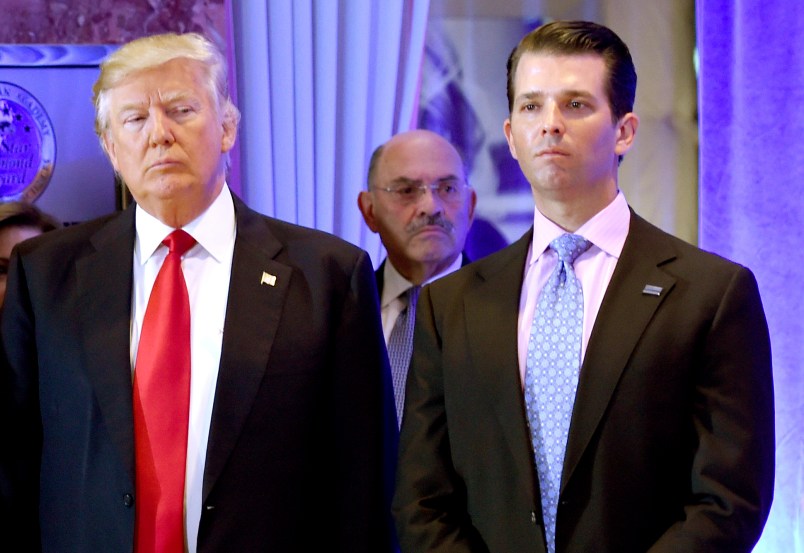The Manhattan district attorney suggested Monday that a wide-ranging probe of President Trump and the Trump organization may include tax fraud.
Tax fraud adds to the list of crimes that Cyrus Vance has suggested could be the focus his probe of the Trump organization. A New York state grand jury issued a subpoena last year for financial records to Mazars USA LLP, the longtime accountant for President Trump and the Trump organization.
Vance wrote in a brief before the Second Circuit Court of Appeals that there were more than enough public reports and allegations of wrongdoing at the Trump Organization to justify a criminal probe.
“In particular, if misstatements about business properties, wherever located, were conveyed from that business’s headquarters in New York to New York-based business partners, insurers, potential lenders, or tax authorities, those misstatements could establish New York crimes such as,” scheme to defraud, falsifying business records, insurance fraud, and criminal tax fraud, Vance wrote in the filing.
Vance had previously suggested that the probe covers allegations of insurance fraud.
In raising the possibility of a tax fraud probe, Vance noted that President Trump’s former attorney Michael Cohen had testified that his old boss would alter the book value of his properties to receive tax benefits.
The admission came as the legal fight over the grand jury subpoena for President Trump’s financial records drags on into its second year. President Trump has been wildly successful in preventing anyone from gaining any level of access to his financial records, deploying squads of private attorneys and the Justice Department to fend off requests from Congress and New York state prosecutors.
Using personal attorneys, President Trump sued in August 2019 to block Mazars from complying with the subpoena.
After the Supreme Court struck down Trump’s first bid to throw out the subpoena (in which his attorney famously argued that the NYPD could not investigate Trump for shooting someone on Fifth Avenue while in office), it gave the President leave to file further arguments at the district court level.
Those arguments are now winding the familiar path back up to the Supreme Court.
Read the filing here:






